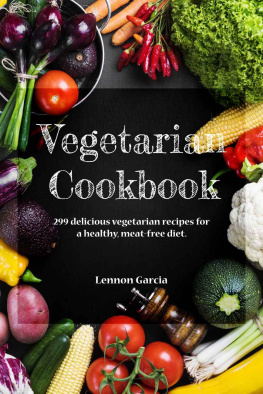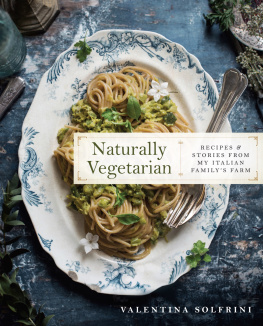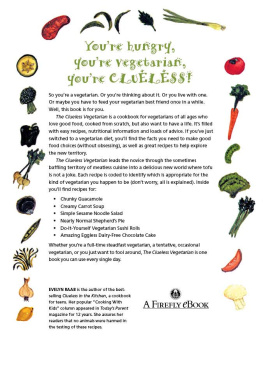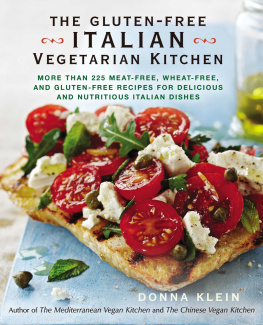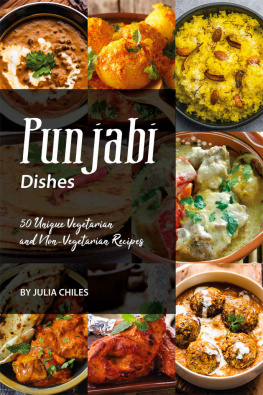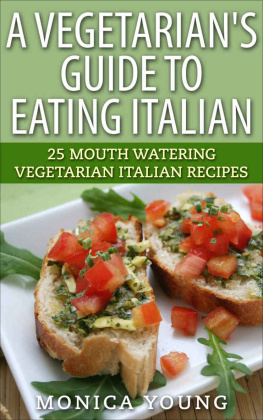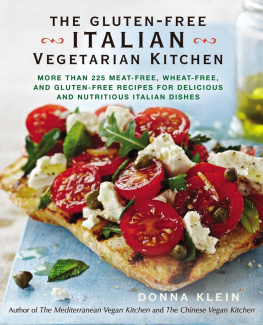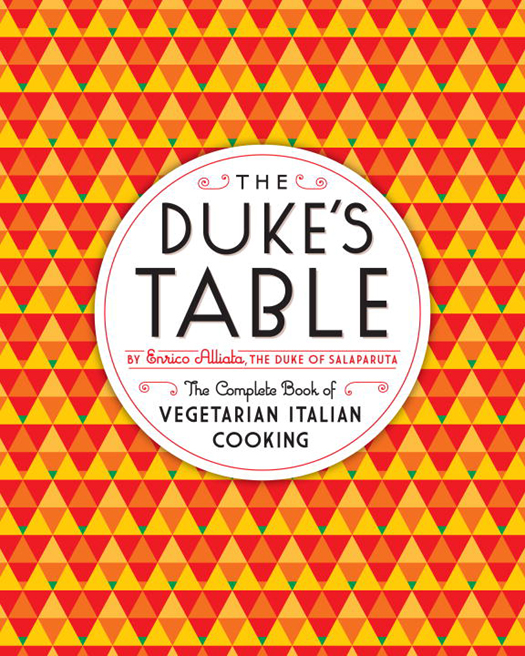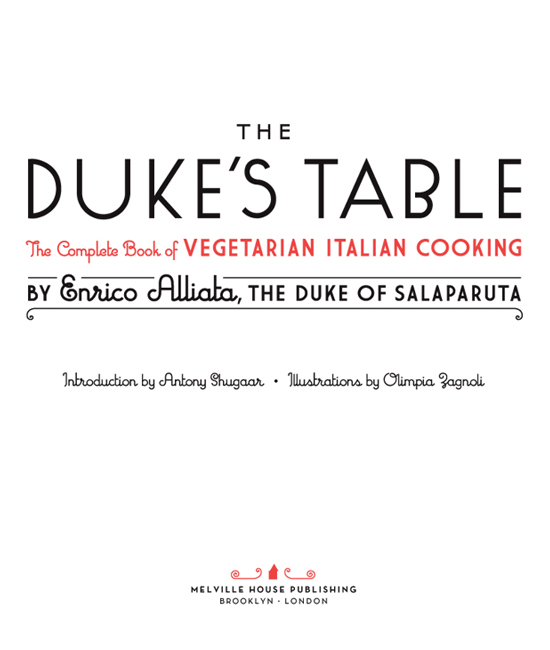ENRICO ALLIATA, THE DUKE OF SALAPARUTA, (18791946) was born in Sicily. He studied music at the Conservatory of Milan but eventually gave up music to study agriculture and run the family wine business.
In 1824, Enricos great-grandfather, Giuseppe Alliata (Prince of Villafranca, Prince of the Holy Roman Empire, Grandee of Spain, and Duke of Salaparuta) founded the Corvo wine company to produce gifts for diplomats, ambassadors, princes, and noble ladies. Enrico later transformed the family vineyard into a successful international business.
Among many interests, Enrico Alliata was a dedicated student of diet and health. He wrote against the dietary orthodoxy of the day and advocated a vegetarian diet, which he believed could prolong human life to 130 years and which he called absolutely regenerative.
To Alliata, however, vegetarianism was no impediment to a good meal: he often hosted six-course vegetarian feasts, which he believed to bealong with the house winea solution to human happiness.
THE DUKES TABLE

Originally published as Cucina vegetariana e naturismo crudo: Manuale di gastrosofia naturista
| 1930 Hoepli Editore, Milano | Introduction 2013 Antony Shugaar |
| Translation Sellerio Editore, Palermo | Illustrations 2013 Olimpia Zagnoli |
| This edition 2013 Melville House Publishing | Book design by Christopher King |
First Melville House printing: March 2013
Melville House Publishing
145 Plymouth Street
Brooklyn, New York 11201 | and | 8 Blackstock Mews
Islington
London N4 2BT |
mhpbooks.com
eISBN: 978-1-61219-140-9
A catalog record for this title is available from the Library of Congress.
Limit of Liability/Disclaimer of Warrant: While the publisher and the author have used their best efforts in preparing this book, they make no representations or warranties with respect to the accuracy or completeness of the contents of this book and specifically disclaim any implied warranties of merchantability or fitness for a particular purpose. No warranty may be created or extended by sales representatives or written sales materials. The advice and strategies contained herein may not be suitable for your situation. You should consult with a professional where appropriate. Neither the publisher nor the author shall be liable for any loss of profit or any other commercial damages, including but not limited to special, incidental, consequential, or other damages. Eating raw or undercooked eggs may be harmful to your health.
v3.1
PART 1
GETTING STARTED
PART 2
RECIPES
PART 3
RAW FOOD
BY ANTONY SHUGAAR
Enrico Alliata, born in 1879, grew up in Bagheria in one of the jewels of Sicilian architecture, the Villa Valguarnera. When the French novelist Stendhal visited the house, he wrote that its view draws music from the soul, like a bow from a violin.
The Alliatas were a culinary family. Enricos great-grandfather bottled a wine under the Duca di Salaparuta label. Enrico himself eventually took over the family wine business, bringing new production and commercial skills to the operation and expanding it into an international business. Today the family still controls lands in Contrada Corvo and Contrada Traversa and produces wine under the Alliata label. The Corvo Wine Company, an offshoot of the family business that was named by Enricos father, is today the biggest wine producer in Sicily.
A look at the life of Duke Enricoas Enrico Alliata, Duke of Salaparuta was known during his lifetimereads like a whos who of twentieth culture and spirituality. Enrico was a fellow Palermitan prince to Giuseppe Tomasi di Lampedusa, author of one of the greatest works of Italian literature, The Leopard. He was married to Sonia Maria Amelia de Ortuzar Ovalle de Olivarez, a promising opera singer raised in Paris who studied under Enrico Caruso. His world also intersected with that of Jidda Krishnamurti, the world-famous Indian author and philosopher.
There is an age-old connection between vegetarianism and spiritualism that is hardly limited to the Mediterranean region, but it seems to have been particularly pronounced in Duke Enricos case. Indeed, you can glimpse a blend of the ancient spirit of alchemy and the burgeoning industrial revolution in Enricos ambitious fascination with the culinary conjuring trick he repeatedly performs hereproposing a radical new diet for Italy.
Duke Enrico begins his cookbook with the observation that all the food a person needs to live and thrive is a bowl of pasta with butter and some fruit on the side. Such a focus on grain and fruit is hardly surprising. The area surrounding Sicilys capital, Palermo, is known as the Conca dOro, literally, the Golden Bowl, for its amphitheater shape and the profusion of citrus and other fruit trees that dot its slopes.
Red meat, in fact, has never been a major part of the diet of southern Italy. The ancient Greeks who colonized it looked on meat eating as a sign of barbarism. Sicily was also the breadbasket of the Roman Empire, a valuable cornucopia of wheat when bread was the very basis of political power. Nor was meat a major part of the diet of the Arabs who colonized the island in the Middle Ages.
In the tradition of the Kings of the Two Sicilies, who established pasta mills to better the conditions of their subjects, Enrico Alliata created his vegetarian cookbook (originally published in Italy in 1930 as Vegetarian Cuisine and Natural Raw Food) to explain to the farmers and peasants of Sicily, and of Italy at large, the economic and physical benefits of a vegetarian diet.
Indeed, according to his family, Enrico lived his life accustomed to the privileges of a world he had cheerfully come to hold in contempt and detest, in particular the eating of meat. He early identified as a vegetarian, advocating vegetarianism in his writings as a question of ethics, diet, and health. And in this cookbookthe first vegetarian cookbook published in Italyhe implores his contemporaries to stop eating meat altogether.
He wrote from a city that had a culinary tradition that favored high-calorie, inexpensive foods: fried riceballs stuffed with chopped meat, the less-favored cuts and organs of livestock, cheap and savory street food, fritters and cannoli



